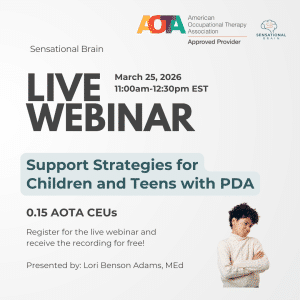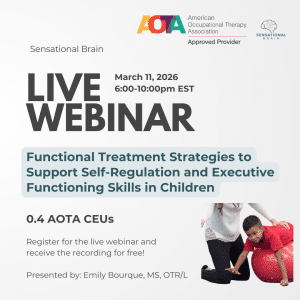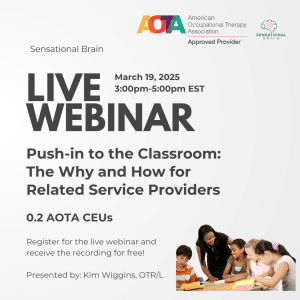
Here at Sensational Brain, we strive to provide the highest quality continuing education for occupational therapists, parents, and educators to learn the most up to date information on a variety of topics!
We have webinars covering sensory processing, trauma-informed care, executive functioning, ADHD, feeding, primitive reflex integration, self-care and more!
We offer both live and view-on-demand webinars for AOTA continuing education units, that will help you take your clinical or school-based practice to the next level!
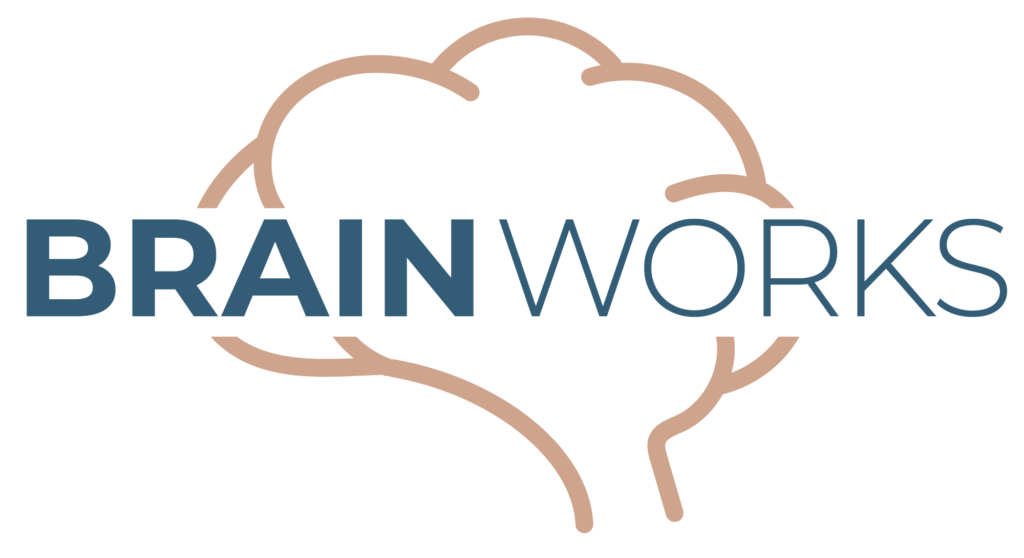
So happy you found BrainWorks! Our goal is to make your life a little bit easier. We know you don’t have any extra time to spend creating the perfect sensory diets for your students, clients or for your own child. That’s why we created BrainWorks!
Build custom sensory diets, visual schedules, primitive reflex programs or emotional intelligence tools with a few clicks using our drag and drop technology.
We have hundreds of activity cards for you to build your BrainWorks tool with! From spinning, to therapy ball activities, to getting dressed to primitive reflex exercises, to sensory breaks, we’ve got you covered, whether you’re a parent, therapist or educator.
Become a BrainWorks member to access our digital platform that allows you to create hundreds of different tools, OR choose a printed kit with everything you need to make a custom sensory diet in less than 10 minutes!
The best part? We want you to feel confident in your ability to make sensory diets, so we provide all of the information you need to identify sensory preferences, understand the order of operations, and recognize sensory processing patterns!
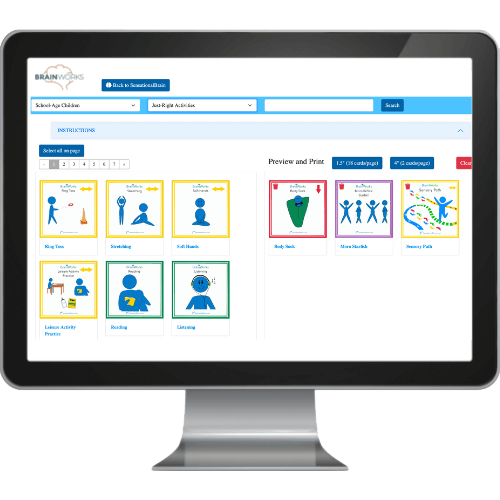

Visit the brainworks members area.

Drag and drop your choice of cards.

Choose 1.5" or 4" cards and click print!
This 5-week guided program provides over 35 daily activities to build foundational skills, including ocular motor skills, timing and sequencing, and integrating primitive reflexes. Designed to be implemented in the classroom, home and clinic settings to build on the important skill of crawling!
The Jungle Crawl© is an interactive children’s book that inspires movement, primitive reflex integration and play during story time! This rhyming story is designed for babies and toddlers who are too young for the full Crawling for Brain Development© Curriculum. Older children will love to engage and participate as well! Each page focuses on a different primitive reflex movement or brain boosting activity for children to complete!
Whether you’re looking for an occupational therapist who specializes in reflex integration, a pediatric chiropractor, or a therapist who does neurofeedback therapy, our directory is your one-stop resource. Each professional listed here is committed to providing the highest quality of care, ensuring your child’s growth and development are nurtured with excellence. We understand the importance of finding the right healthcare provider for your family, and our directory is designed to make that process easier and more accessible, so you can make informed choices for your child’s health and well-being.
